There is no doubt that James Robertson Justice enjoyed a long and quite successful film career from about 1949 with ‘Scott of the Antarctic’ through to ‘Chitty Chitty Chitty Bang Bang’ in the mid Sixties and he was continuously working in films throughout that time.
He played Little John in ‘The Story of Robin Hood and His Merrie Men’ and later again for Walt Disney was in ‘The Sword and The Rose’ and ‘Rob Roy The Highland Rogue’
ABOVE – James Robertson Justice as Little John, Richard Todd as Robin Hood and James Hayter as Friar Tuck in ‘The Story of Robin Hood and His Merrie Men’ 1952
This scene ABOVE – does not appear in the film at all, as many of you will know – so it was probably just a publicity still. Very good it was too.
He was very good as Little John I have to say – he fitted the part physically and had a good role and played it well – although very much as he would play many if not all, of his later film roles – with a loud voice and much bluster.
He was very good as King Henry VIII in The Sword and The Rose – in fact he really looked that part there – however in his next film ‘Rob Roy The Highland Rogue’ for a man who proudly claimed to be a Scot, he had the worst Scottish accent I have heard in films – he didn’t seem to get it at all. I always admire the way that actors of all eras seem so able to drop into virtually any accent or dialect that is required to play a part – maybe this exposed James Robertson Justice’s lack of acting skills – I reckon it did.
However, for all my reservations about this character, he was remarkably successful over a number of years – so that certainly says something about him.
James Robertson Justice ABOVE at home in his cottage in Spinningdale, Scotland.
During the 1950s, Justice bought a cottage at Spinningdale in Sutherland where he ‘drank neat Rose’s Lime Juice and breakfasted on whisky and a raw egg’. He loved to stay there between films, entertaining guests who ranged from locals to royalty, and usually travelled north by road.
The route to and from Spinningdale took him past the Glenmorangie distillery nearby, and Justice befriended the distillery manager Gordon Smart. Smart’s grandsons remember him turning up at the manager’s roadside cottage on many occasions, often with a glamourous female companion in the passenger seat of his latest sports car. He would speed up and down the road to show off the car’s performance, before going inside to enjoy a dram or two.
James Robertson Justice at Home at Spinningdale ABOVE and BELOW
James Robertson Justice
James Robertson Justice
James Robertson Justice – ABOVE surprisingly to me anyway, he seemed to enjoy a game of bowls.
James Robertson Justice ABOVE with his falcons
James Robertson Justice ABOVE and BELOW – walking close to his home in Scotland.
James Robertson Justice
James Robertson Justice (1907-75) was not born ‘under a distillery in Skye’, as he claimed. In fact this most famous Scottish actor was actually born in London and christened James Norval Harald Justice. However he decided that he wanted to be a Scotsman like his father and so he adopted more of a Scottish-sounding name, and an enthusiasm for wearing the kilt.
He claimed that his early life was full of adventure. He studied in Germany where he was able to develop his linguistic skills – he briefly became a journalist and the tried his hand at various jobs while living in Canada during the Depression.
Returning home to England, he played ice hockey professionally and competed as a racing driver. In the mid-1930s he served as a League of Nations peacekeeper in the Saar and, subsequently, a fighter (on the Republican side) during the Spanish Civil War. He joined the Royal Naval Volunteer Reserve during the Second World War but was invalided out.
He became an actor at the age of 37.
His breakthrough film performance came in 1949, when he played Dr Maclaren in Ealing the classic Whisky Galore!. He subsequently made around 90 films, appearing in box office hits such as Land of the Pharaohs (1955), The Guns of Navarone (1961), and Chitty Chitty Bang Bang (1968). His most famous role was that of the eminent and gloriously belligerent surgeon Sir Launcelot Spratt, in the hugely successful Doctor in the House (1954) and its sequels.
He always denied being a film star – he acted, he said, simply to pay the bills for his many other enthusiasms. His greatest love was for the countryside and he was especially keen on wildfowling (he was a founder of the Wildfowl Trust), fishing and falconry.
It was falconry that brought him into contact with Prince Philip, and the two became lifelong friends. The Prince invited him to join his exclusive Thursday Club, and sent his teenage son Prince Charles to stay with Justice one summer, to learn about falconry and country pursuits.
After separating from his first wife at the beginning of the 1950s, Justice became the subject of gossip about romances and dalliances with a number of young women including the designer and author Molly Parkin.
He died virtually penniless in 1976, after a punishing divorce settlement and a period of ill health. He left behind on film a series of performances – Little John, Sir Lancelot Spratt, Lord Scrumptious and others, which continue to delight fans of British cinema.
He was a ‘larger that life’ character
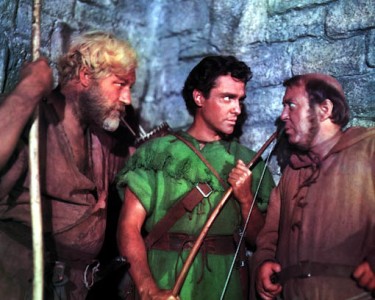
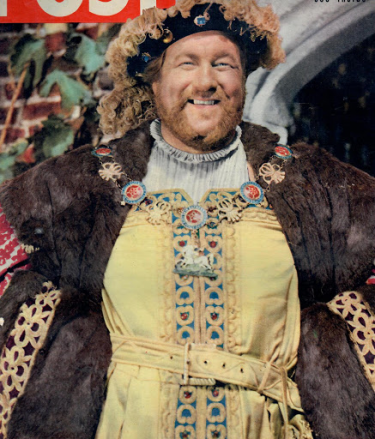
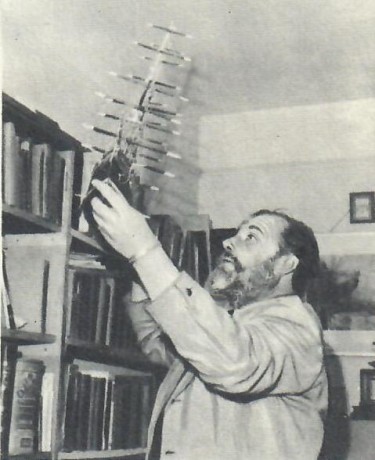
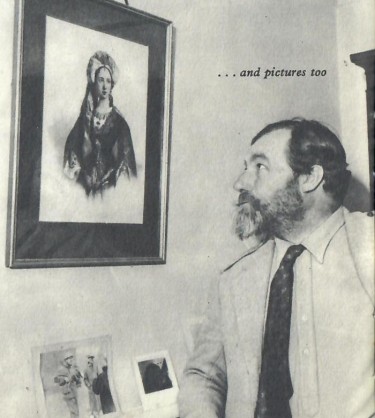
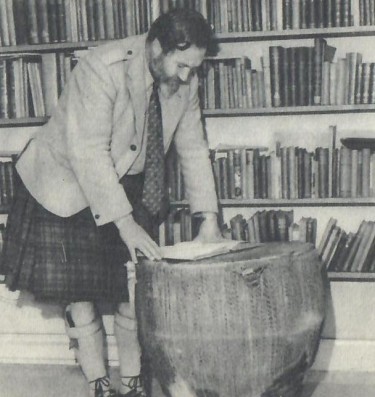
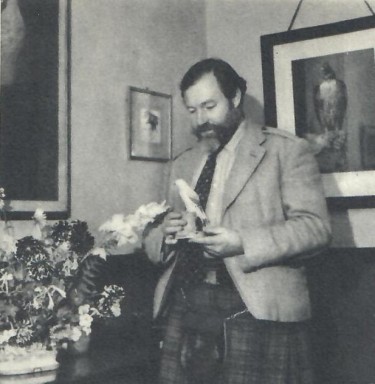
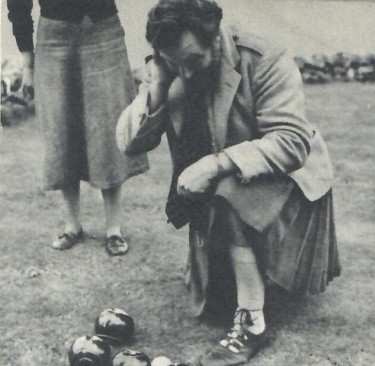
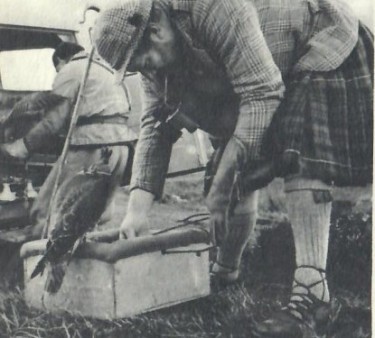
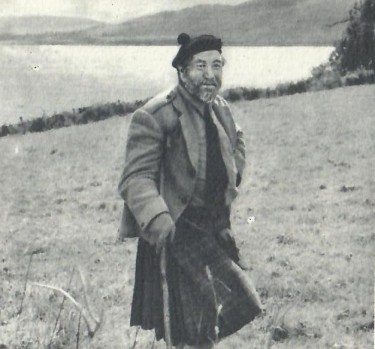
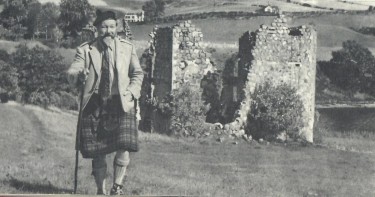
He was a self-appointed Scot. Idi Amin was also a self-appointed Scot, but James Robertson Justice was most certainly not a self-appointed disgrace and embarrassment to Scotland like Idi Amin was. The ruined building seen behind him in one of the photos of him at home in Spinningdale is not an old castle but an 18th Century cotton mill.
… [Trackback]
[…] Information on that Topic: filmsofthefifties.com/james-robertson-justice-again/ […]
… [Trackback]
[…] Information on that Topic: filmsofthefifties.com/james-robertson-justice-again/ […]
… [Trackback]
[…] There you can find 89648 more Information to that Topic: filmsofthefifties.com/james-robertson-justice-again/ […]
… [Trackback]
[…] Read More to that Topic: filmsofthefifties.com/james-robertson-justice-again/ […]
Thanks for sharing. I read many of your blog posts, cool, your blog is very good. https://accounts.binance.info/zh-TC/register?ref=DCKLL1YD